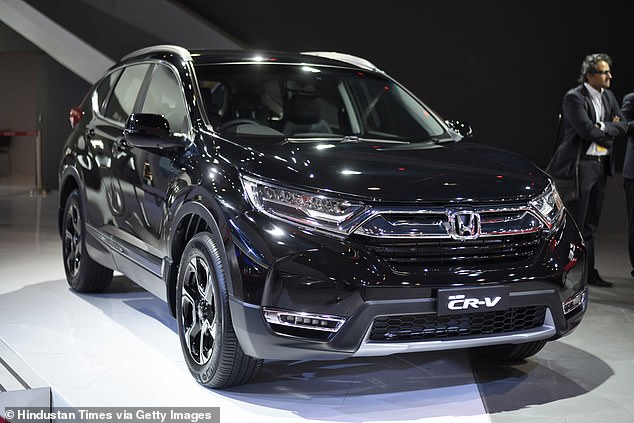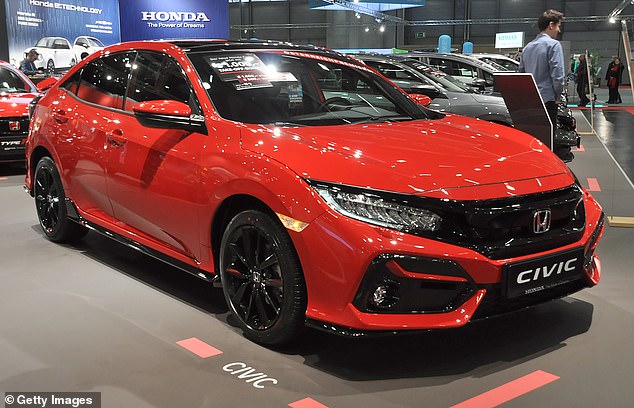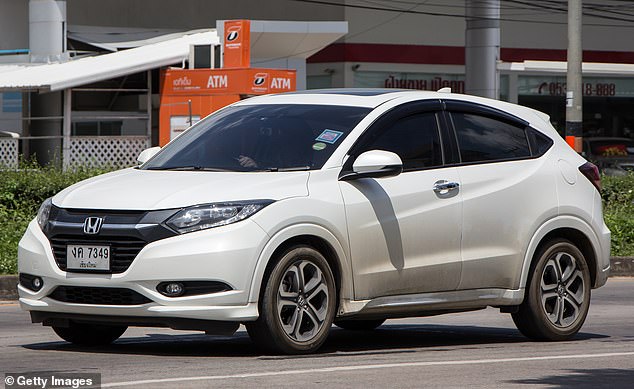Honda recalls 2.5 MILLION vehicles over fuel pump fault that officials warn can cause cars to crash while being driven – is YOUR model affected?
- Regulators claim that a fuel pump failure can cause the engine to stall while driving
- Includes one of America's best-selling cars – the CR-V – and other models
- On Wednesday, Toyota also recalled more than a million cars due to airbag problems
- View the table below for the full list of affected vehicles
Honda is recalling more than 2.5 million cars sold between 2017 and 2020 due to a defective fuel pump that can cause vehicles to stall while driving.
The problem means the car's engine may not start, but if this happens while driving it could cause 'accident and injury risks', according to the National Highway Traffic Safety Administration (NHTSA).
It is the second major car recall of the week. On Thursday morning, Japanese automaker Toyota was forced to recall 1.1 million cars in the US due to airbag problems.
To resolve the problem, dealers will replace the fuel pump free of charge, the NHTSA said Thursday. Owner notification letters are expected to be mailed on February 5, 2024.
Many of Honda's most popular models are affected, including the Accord, Civic, CR-V, HR-V, Ridgeline and Odyssey – plus the $160,000 NSX sports car sold under the company's Acura brand. Scroll down for a full searchable list.
Among the vehicles affected by the fuel pump recall are 2018 – 2020 Acura NSX models. Pictured is the Acura NSX30 on display at the 2019 Chicago Auto Show

Honda is recalling about 2.5 million vehicles due to the risk of fuel pump defects, the NHTSA said Thursday
The Honda CR-V is one of the best-selling cars in the US; the automaker sells about 250,000 each year.
Honda says it has not received any crash or injury reports related to this recall to date.
The fuel pump impeller – the fan that generates the pressure needed to pump gas – was not formed properly. That resulted in low-density impellers that over time “can deform and distort the fuel pump body,” regulators said.
This is Honda's second recall this week. On Tuesday, the NHTSA announced a recall of more than 106,000 hybrid CR-V vehicles between 2020 and 2022 due to a missing fuse.
It was said that this could cause the battery cable to short circuit or overheat during a crash.
Meanwhile, Toyota is recalling 1.1 million cars worldwide due to a defect that prevents the airbags from deploying.
The recall Thursday covers a range of Toyota and Lexus vehicles with model years from 2020 to 2022.
Toyota's share price fell 5 percent following the recall and news that subsidiary Daihatsu's offices in Japan were raided over a safety scandal.

Versions of the Honda CR-V between 2018 and 2020 are also affected by the recall. Owners can take their vehicle to a dealer who will replace the fuel pump for free

A Honda Civic, also affected by the recall, is on display at the 2020 Vienna Motor Show

Honda HR-V models like this also suffer from the defective fuel pump
The recall affected a range of Toyota and Lexus vehicles with model years from 2020 to 2022. The recall included Toyota Avalons, Camrys, Highlanders, RAV4s, Siennas and Corollas.
The vehicles being recalled have sensors on the front passenger seat could potentially cause a short circuit, preventing the airbag system from determining the occupant's weight and possibly deploying in the event of an accident.
A day earlier, Daihatsu said it would suspend shipments of all its vehicles indefinitely after discovering safety inspection irregularities.
A panel had been investigating the automaker after it said in April that it had cheated side-impact safety tests conducted on 88,000 cars.
